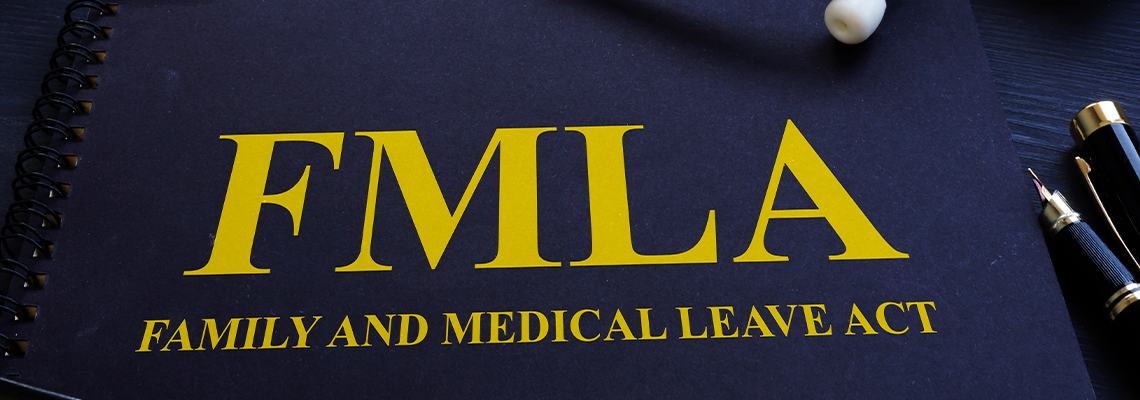
Can My Employer Deny FMLA Leave?
Before there was the federal Family and Medical Leave Act (FMLA) in 1993 that provided for unpaid leave for employees facing certain health and family emergencies, West Virginia in 1989 had already enacted its Parental Leave Act (PLA).
Though more limited in scope, the PLA provided for 12 weeks of unpaid leave for qualifying employees to care for the birth or adoption of a child or for the care of a spouse, child, parent or dependent with a serious health condition.
Though the FMLA later provided the same leave nationwide for qualifying employers and qualifying employees, the PLA had less stringent requirements. The FMLA requires the employee to work for a qualifying employer – one with 50 or more employees in a 75-mile radius – for 1,250 hours in a 12-month period, but the PLA requires only “12 consecutive weeks performing services for remuneration” for any sized employer.
Because of the overlap of the two programs, the West Virginia Division of Personnel in 2010 issued an Administrative Rule so that employees could enjoy “the greatest benefit or most generous rights provided under the different parts of each law.” Essentially, what this rule means is that it is up to the employee’s discretion to choose which program offers the benefits they prefer.
If, however, you have been denied your benefits under the FMLA in or around Charleston, West Virginia, contact the FMLA/employment law attorneys at Atkinson & Frampton, PLLC. We are dedicated to correcting wrongs in the workplace. If your FMLA privileges have been abused, we stand ready to help you exercise your rights and address the slight dealt you. We proudly represent clients throughout the state of West Virginia, including Morgantown, Huntington, Beckley, Martinsburg, and Parkersburg.
Who Is Eligible for FMLA Leave?
To qualify for federal FMLA leave, an employee must work for their employer for 1,250 hours in a 12-month period, though the 12 months do not have to be consecutive if the work is seasonal. Also, the employer must meet the threshold of having at least 50 employees in a 75-mile radius.
A qualifying employee is then allowed to take 12 weeks of unpaid leave within a 12-month period for various purposes:
For the birth of a son or daughter, and to bond with the newborn child
For the placement with the employee of a child for adoption or foster care, and to bond with that child
To care for an immediate family member (spouse, child, or parent – but not a parent “in-law”) with a serious health condition
To take medical leave when the employee is unable to work because of a serious health condition
For qualifying exigencies arising out of the fact that the employee’s spouse, son, daughter, or parent is on covered active duty or call to covered active-duty status as a member of the National Guard, Reserves, or Regular Armed Forces
In other words, the FMLA is more comprehensive in the leave it provides than the PLA, thus the need for the West Virginia Administrative Rule: pick which program serves you the best.
Note, however, that both FMLA and PLA leave can be intermittent. Intermittent means that the employee takes the leave in segments, say one or two days a week, or even half a day here and there. Also, though it is not a mandate of the FMLA (but is of the PLA), the employer can require employees to use their earned paid leave as part of the total time off.
Can I Be Denied FMLA Leave?
The most obvious reasons for being denied FMLA leave are threefold: you haven’t met the work requirement of 1,250 hours in a 12-month period, your employer doesn’t qualify with the requisite number of employees, or you have already exhausted your 12 weeks in the current 12-month period.
Beyond that, the DOL website is pretty straightforward and adamant about granting FMLA leave, asserting that a “covered employer must grant an eligible employee up to a total of 12 workweeks of unpaid, job-protected leave in a 12 month period” for any of the reasons cited above. The same holds true if military caregiver leave is requested and it meets the eligibility standards.
However, if the FMLA request is for a serious health condition, the employer can request medical certification and even recertification. When an employee makes a request for leave based on a serious health condition and the employer requests certification, the employer must allow at least 15 days for the employee to comply.
Following that, if the employer deems the certification to be incomplete or unconvincing, they can request further information in writing but must give the employee seven days to respond. In addition, the employer can request follow-up medical certifications but they have to pay for them. If the employer finds the medical certification(s) to be insufficient, they can indeed move to deny the leave, but they may be on shaky grounds.
Speak with an Experienced Attorney
If you’re meeting resistance in your request for FMLA leave based on certification or qualification factors, reach out to us immediately at Atkinson & Frampton, PLLC. We are conversant with all aspects of the Family and Medical Leave Act and will help you aggressively assert your rights. If you have been wrongfully denied leave, we can help you navigate the system, report the violation to the U.S. Department of Labor (DOL), and ultimately initiate a lawsuit if warranted.
Section 105 of the FMLA states directly that “An employer is prohibited from interfering with, restraining, or denying the exercise of, or the attempt to exercise, any FMLA right.” We are here to help you make sure your rights are not violated and that your employer is held responsible for any wrongful action, including retaliation, involving your FMLA request. Reach out immediately if you are in or around Charleston, West Virginia, and your FMLA rights have been abused.
